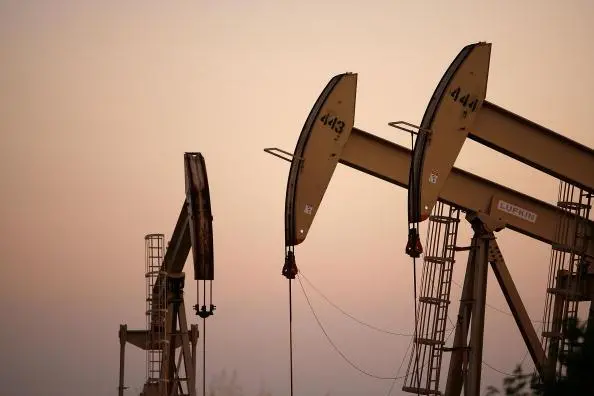PHOTO
The Middle East's oil-producing nations are on course to witness accelerated growth in 2018 after a slowdown last year, according to a new note published by BMI Research, a Fitch Group company.
The firm said in a 'Mid-Year Update' published on Friday that although few of the region's governments have released Q1 economic data for 2018, "we continue to believe that the major oil producers are set for an acceleration in growth on the back of rising oil prices and an uptick in production". It said that Brent crude was currently trading in the region of around $70 per barrel, compared to $53.40 at the same time last year, and had risen much faster than its analysts had predicted.
BMI Research also said it was "increasingly likely" that the ongoing regime of oil production cuts agreed by members of the Organization of Petroleum Exporting Countries with Russia and some other non-OPEC members could begin to be wound down from July, partly due to concerns about a drop in supply from Iran following the re-imposition of sanctions by the United States, and partly due to plunging supply levels from Venezuela. An OPEC ministerial meeting is due to take place in Vienna on Friday (June 22).
"The added output will have a direct impact on the economic growth of the region’s oil producers, with the largest swings set to be recorded in Kuwait, Oman and Saudi Arabia," BMI Research said in its note, arguing that the increased hydrocarbon revenue will help to ease budget deficits, but could also lead to some of the momentum behind economic reforms weakening.
BMI Research stated that Saudi Arabia, particularly, needs to continue with its reform efforts. It said that although progress has been made with social reforms, particularly with the lifting of the ban on women driving from next week, "we think several large questions remain unanswered and as such, believe more needs to happen in the coming months to cement the country's positive outlook".
It pointed to the proposed IPO of Saudi Aramco - initially scheduled for this year, but likely to be finalised in 2019 - will provide an important signal about the country's intentions.
It said that a reluctance to provide transparency about Aramco's financials - by arranging a private placement or merely a domestic listing as opposed to an international IPO - could be viewed as evidence that the country's reform intentions are "overstated".
"On the other hand, if the government provides a clear roadmap for a public listing, we believe investors would feel much more confident about the future of the Saudi economy," the note said.
Meanwhile, in a separate note published on Monday previewing this week's OPEC ministerial meeting, Emirates NBD commodity analyst Edward Bell said that it expects the current agreement to remain in place, with disagreements likely between those in favour of maintaining current production cuts and those in favour of their removal.
It said that although production increases were likely as nations such as Saudi Arabia, Kuwait and the United Arab Emirates which have been over-compliant with current agreements increase production to fully fill their quotas until the existing agreement expires by the end of this year.
Further reading:
- Oil steadies ahead of key OPEC meeting
- Week ahead: testing times for trade, OPEC
- Strong and stable: Moody's delivers its verdict on the UAE's financial performance
- Saudi Arabia raises oil output amid fears of supply crunch
- State budget deficit raises risks for Saudi economy
(Writing by Michael Fahy; Editing by Shane McGinley)
(michael.fahy@thomsonreuters.com)
Our Standards: The Thomson Reuters Trust Principles
Disclaimer: This article is provided for informational purposes only. The content does not provide tax, legal or investment advice or opinion regarding the suitability, value or profitability of any particular security, portfolio or investment strategy. Read our full disclaimer policy here.
© ZAWYA 2018





















